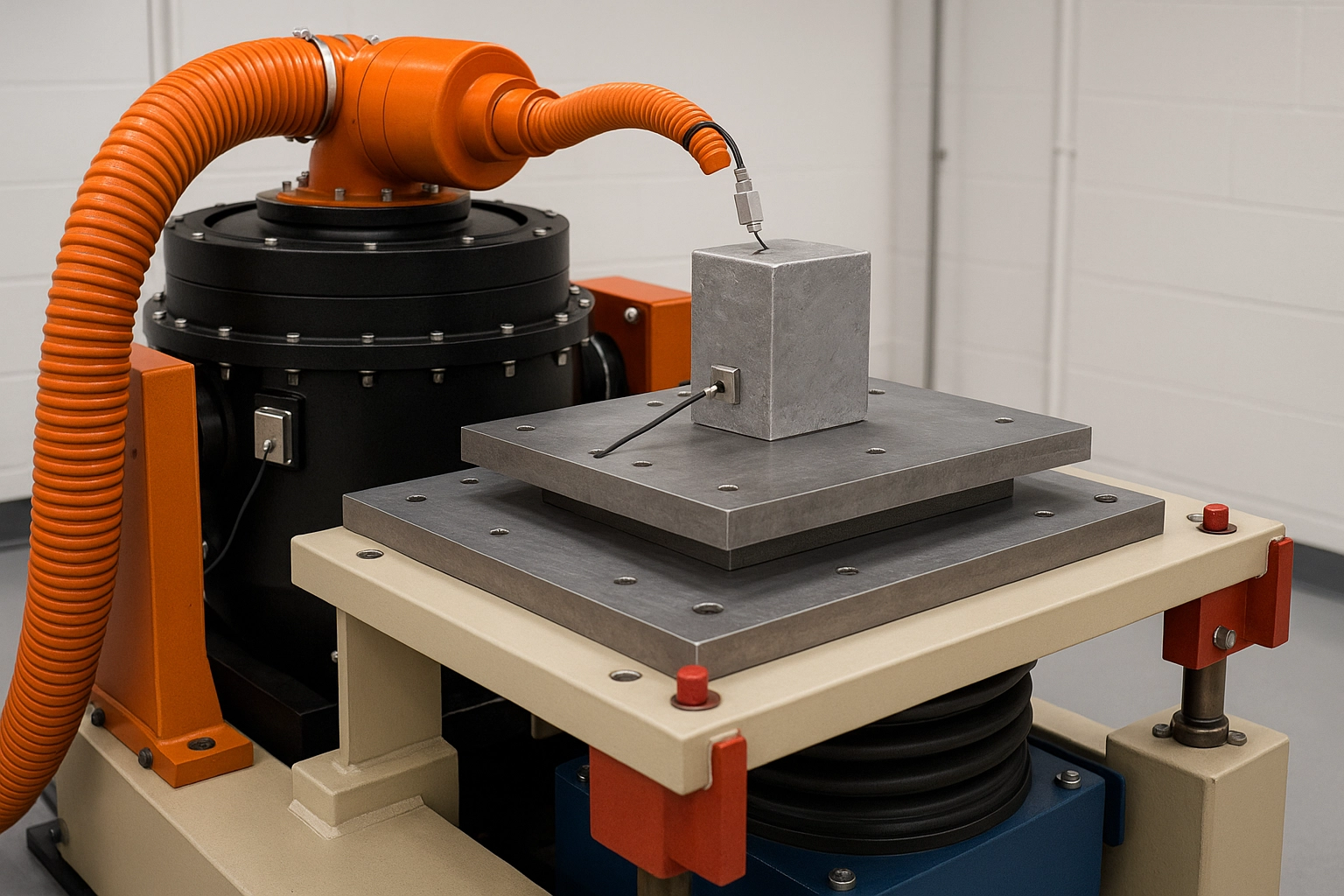ASTM D6055 Mechanical Handling Shock Testing of Automotive Units
The ASTM D6055 standard provides a comprehensive framework for testing the mechanical handling shock resistance of automotive units. This test is crucial in ensuring that components and assemblies meet stringent safety standards, particularly under harsh environmental conditions encountered during manufacturing, transportation, and deployment.
Under this standard, specimens are subjected to controlled shock events designed to replicate real-world scenarios where they may be exposed to sudden impacts or vibrations. The purpose of such testing is not only to assess the structural integrity but also to evaluate the performance and durability of critical components like engine blocks, transmissions, and electronic control units.
Compliance with ASTM D6055 ensures that automotive manufacturers can meet regulatory requirements across various markets, thereby protecting both their reputation and consumer safety. The test procedure involves subjecting the specimen to a series of shock pulses over a specified duration using an environmental chamber or similar setup. The parameters for these shocks are meticulously defined in accordance with the standard.
The acceptance criteria for this testing include the observation of no visible damage, deformation, or functional impairment after exposure to the prescribed shock levels. This ensures that even under extreme conditions, critical automotive components maintain their operational performance and reliability. The test is particularly relevant for ensuring that parts can withstand the rigors of transportation from manufacturing plants to distribution centers or directly to end-users.
In addition to compliance with regulatory standards, testing according to ASTM D6055 offers several practical benefits. It helps identify potential design flaws early in the development process, allowing manufacturers to make necessary adjustments before large-scale production begins. Furthermore, by simulating real-world conditions, this test enhances the overall quality and reliability of automotive components, contributing significantly to customer satisfaction.
The mechanical shock testing per ASTM D6055 is also a critical tool for R&D teams working on new vehicle designs or improvements. By subjecting prototypes to controlled shock events, engineers can gain insights into how different materials and structures perform under stress. This data is invaluable in optimizing future iterations of automotive systems.
For quality managers and compliance officers, ensuring adherence to ASTM D6055 is essential for maintaining a robust quality assurance process. It helps maintain consistent product quality across manufacturing batches and ensures that suppliers meet the required standards. In procurement, this test serves as a benchmark for selecting reliable suppliers who can deliver components capable of withstanding the specified shock levels.
The application of ASTM D6055 extends beyond just automotive units to other sectors where mechanical handling shocks are prevalent, such as aerospace and defense. The principles and methodologies used in this standard provide a solid foundation for understanding and mitigating risks associated with shock exposure across various industries.
Industry Applications
The ASTM D6055 mechanical handling shock testing is widely applicable in the automotive industry, where ensuring component durability under extreme conditions is paramount. This test is particularly valuable for manufacturers of vehicles ranging from passenger cars to heavy-duty trucks and buses.
- Passenger Cars: Ensuring that engine blocks, transmissions, and electronic control units can withstand the rigors of transportation and road conditions.
- Commercial Vehicles: Testing the resilience of components like axles and suspension systems to prevent failures during long-distance hauling.
- Off-Road Vehicles: Evaluating how parts perform in challenging terrains where sudden shocks are more common.
Besides automotive applications, ASTM D6055 is also beneficial for manufacturers of other transport equipment such as motorcycles and ATVs. It helps in assessing the performance of components like frames, seats, and handlebars under mechanical shocks.
In addition to manufacturing processes, this test is equally important during transportation logistics. For instance, it ensures that parts remain undamaged when shipped from factories to dealerships or directly to customers. This enhances customer satisfaction by delivering high-quality products consistently.
For suppliers of automotive components, compliance with ASTM D6055 provides a competitive edge by demonstrating their ability to deliver reliable and robust products. It also helps in maintaining long-term relationships with reputable manufacturers who prioritize quality and safety.
Why Choose This Test
- Ensures Compliance: ASTM D6055 ensures that automotive components meet stringent safety and quality standards, which is crucial for regulatory compliance in various markets.
- Promotes Reliability: By simulating real-world shock conditions, this test helps identify potential design flaws early in the development process, enhancing overall product reliability.
- Enhances Quality Assurance: Compliance with ASTM D6055 provides a robust foundation for maintaining consistent product quality across manufacturing batches and ensuring high-quality deliveries to customers.
- Sustains Reputation: Ensuring that automotive parts can withstand mechanical shocks contributes significantly to customer satisfaction, thereby protecting the manufacturer's reputation and brand image.
Competitive Advantage and Market Impact
Adhering to ASTM D6055 offers significant competitive advantages in the automotive industry. It positions manufacturers as leaders in product quality and reliability, which is increasingly becoming a key differentiator in the market. By demonstrating compliance with this standard, companies can attract more customers and build stronger relationships with suppliers.
The test also plays a crucial role in maintaining a positive brand image and reputation, especially when dealing with high-profile clients or those operating in safety-critical environments. This enhanced reliability and quality can lead to increased market share and better customer loyalty.
In an era where regulatory compliance is more stringent than ever before, ensuring adherence to ASTM D6055 positions automotive manufacturers as industry leaders committed to meeting the highest standards of quality and safety. It also opens doors for international markets where such compliance is a requirement.





